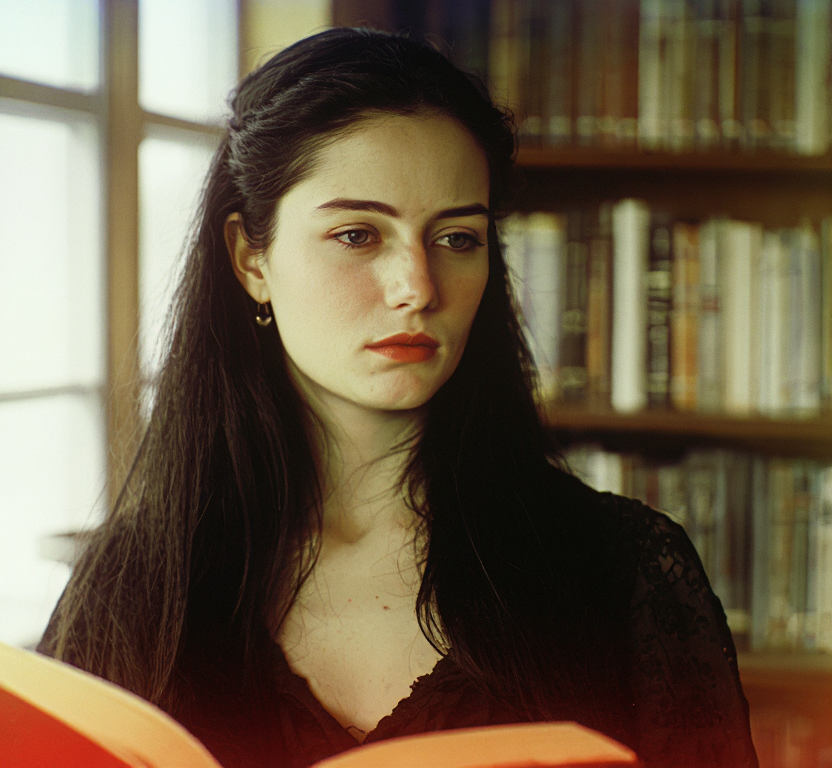license: apache-2.0
tags:
- text-to-image
- template:sd-lora
- flux
- lora
- flux schnell
- image-generation
- diffusers
- photo
pipeline_tag: text-to-image
emoji: 🔜
language:
- en
base_model: black-forest-labs/FLUX.1-schnell
instance_prompt: HST autochrome photo
widget:
- text: hst style photo of a dark-haired woman in a reading room
output:
url: hstiv9.png
- text: hst style autochrome vintage color photo of Rosa Luxemburg
output:
url: hstiv3.png
Soonr Flux HST IV: Historic Color for Schnell
An antique color photography LoRA for FLUX.1-schnell. Trained by A.C.T. Soon® for 4000 steps on one A100 via Colab Pro, using the dedicated Schnell Training Notebook by Ostris on 135 color photographs taken during the 1900s and 1910s by Sergey Prokudin-Gorsky, who traveled and photographed widely in those years while pioneering and perfecting implementations of an early three-color-composite photography technique. We urge you to explore the work of Prokudin-Gorsky for yourself, at the wonderfully organized online archive at this link, featuring many hundreds of high quality downloadable scans of composite color photo prints from the photographer's original glass plate negatives, available at this site alongside relatively recent restorations of a substantial portion of the images. The original glass-plate negatives are currently held at and administrated by the Library of Congress in Washington, DC, USA.
Trigger words
You should use HST to trigger the image generation.
- base model: black-forest-labs/FLUX.1-schnell
- training adapter for Schnell: ostris/FLUX.1-schnell-training-adapter
Historical Note
Prokudin-Gorsky's color photography technique would involve three photo-exposures, either simultaneous or sequential, using specialized color-spectrum filters (basically R.B.G.: red, blue, and green), rendering the same subject/shot onto glass plates covered with light-emulsive mixture. Prokudin-Gorsky's focus on refining the developer and filter quality, in tandem with his incessant and wide-ranging experimentation, and his persistent usage of glass plates (unwieldly and increasingly old-fashioned, but elsewise extra reliable) ultimately led him to produce a color photography oeuvre of much greater fidelity and vividness than achieved by most of his contemporaries. At the same time, the peculiarities of the photographer's method, coupled with his exceptionally hands-on execution thereof, would manifest in a range of idyosyncratic color, light, and motion artifacts common across the resulting prints. Seldom marring the image as a whole, and less grave than the weaknesses of some contemporenously emerging autochrome techniques, the warm color hazes and flares framing many of Prokudin-Gorsky's prints may be seen as a kind of ephemeral signature. Alongside some of the more subtle chromatic, textural, and (in some measure) figural characteristics of his work, these auras have reliably imprinted themselves into this Flux Schnell LoRA, the fourth in our series of historical adapters for Flux.
Download model
Weights for this model are available in Safetensors format. Download them in the Files & versions tab.

- Prompt
- hst style photo of a dark-haired woman in a reading room

- Prompt
- hst style autochrome vintage color photo of Rosa Luxemburg
Use it with the 🧨 diffusers library
from diffusers import AutoPipelineForText2Image
import torch
pipeline = AutoPipelineForText2Image.from_pretrained('black-forest-labs/FLUX.1-schnell', torch_dtype=torch.bfloat16).to('cuda')
pipeline.load_lora_weights('AlekseyCalvin/historic_color_schnell', weight_name='HST_Color_Schnell.safetensors')
image = pipeline('HST style photo of a cat').images[0]
image.save("my_image.png")
For more details, including weighting, merging and fusing LoRAs, check the documentation on loading LoRAs in diffusers


